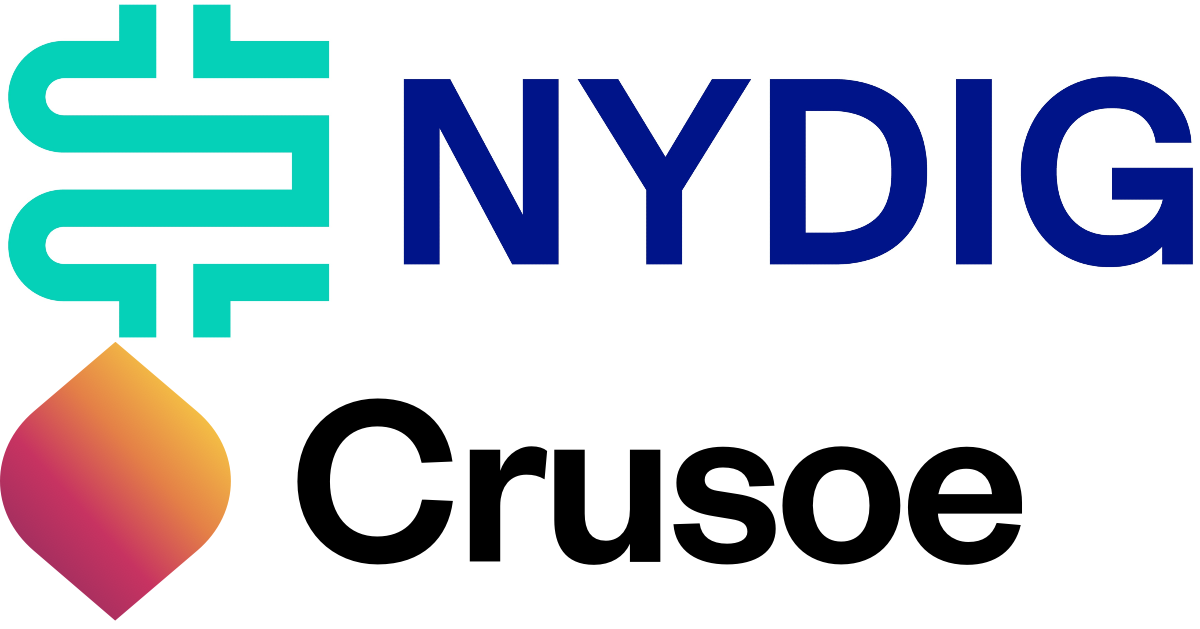NYDIG to Acquire Crusoe’s Bitcoin Mining Operations
Bitcoin Magazine

NYDIG to Acquire Crusoe’s Bitcoin Mining Operations
NYDIG has announced plans to acquire Crusoe’s bitcoin mining operation, including its Digital Flare Mitigation (DFM) business. The transaction is subject to regulatory approvals, customary consents, and final closing. When completed, approximately 135 Crusoe employees will join NYDIG and continue operating the business under its ownership. No job eliminations are expected as a result of the acquisition. The financial terms of the deal have not been disclosed.
“Our partnership with Crusoe was founded on a shared cultural alignment and mutual commitment to driving advancements at the intersection of power and compute,” NYDIG CEO Tejas Shah stated. “Crusoe has built an extraordinary bitcoin mining business by demonstrating remarkable innovation—bringing together the industry’s top talent to solve complex challenges and unlock untapped energy sources. We’re incredibly excited to integrate this world-class team and their capabilities into our growing business.”
Crusoe, founded in 2018, developed DFM technology to convert natural gas from oil fields, which would otherwise be burned off as flares, into electricity for modular data centers. The company initially used these data centers for bitcoin mining before expanding into artificial intelligence (AI) workloads powered by GPU clusters. Crusoe’s approach to colocating computing with energy production has contributed to reducing environmental impact while utilizing stranded energy sources.
Crusoe’s bitcoin mining operations have deployed over 425 modular data centers, accounting for more than 250 megawatts of power across multiple states, including Colorado, North Dakota, Montana, Wyoming, New Mexico, Utah, Texas, and internationally in Argentina. According to the company, its DFM technology has mitigated 2.7 million metric tons of greenhouse gas emissions and prevented nearly 22 billion cubic feet of natural gas from being flared.
“The proof-of-work consensus mechanism in the bitcoin blockchain algorithmically incentivizes the convergence of energy and computing,” said Crusoe co-founder and CEO Chase Lochmiller. “Crusoe is proud to have been a pioneer in repurposing otherwise wasted energy resources such as gas flaring to power the bitcoin network. Our innovative approach to energy utilized for mining is uniquely complementary to NYDIG’s bitcoin custody, institutional trading, and mining businesses, creating a consolidated business that is more valuable than the sum of its parts. We will continue to channel the same energy-first mentality towards scaling AI infrastructure and accelerating the adoption and proliferation of AI in our everyday lives.”
Following the deal, Crusoe will shift its focus toward scaling AI infrastructure, building AI-optimized data centers, and expanding its Crusoe Cloud product offerings while continuing to develop energy solutions for its computing operations.
This post NYDIG to Acquire Crusoe’s Bitcoin Mining Operations first appeared on Bitcoin Magazine and is written by Nik.
NYDIG to Acquire Crusoe’s Bitcoin Mining Operations
Bitcoin Magazine

NYDIG to Acquire Crusoe’s Bitcoin Mining Operations
NYDIG has announced plans to acquire Crusoe’s bitcoin mining operation, including its Digital Flare Mitigation (DFM) business. The transaction is subject to regulatory approvals, customary consents, and final closing. When completed, approximately 135 Crusoe employees will join NYDIG and continue operating the business under its ownership. No job eliminations are expected as a result of the acquisition. The financial terms of the deal have not been disclosed.
“Our partnership with Crusoe was founded on a shared cultural alignment and mutual commitment to driving advancements at the intersection of power and compute,” NYDIG CEO Tejas Shah stated. “Crusoe has built an extraordinary bitcoin mining business by demonstrating remarkable innovation—bringing together the industry’s top talent to solve complex challenges and unlock untapped energy sources. We’re incredibly excited to integrate this world-class team and their capabilities into our growing business.”
Crusoe, founded in 2018, developed DFM technology to convert natural gas from oil fields, which would otherwise be burned off as flares, into electricity for modular data centers. The company initially used these data centers for bitcoin mining before expanding into artificial intelligence (AI) workloads powered by GPU clusters. Crusoe’s approach to colocating computing with energy production has contributed to reducing environmental impact while utilizing stranded energy sources.
Crusoe’s bitcoin mining operations have deployed over 425 modular data centers, accounting for more than 250 megawatts of power across multiple states, including Colorado, North Dakota, Montana, Wyoming, New Mexico, Utah, Texas, and internationally in Argentina. According to the company, its DFM technology has mitigated 2.7 million metric tons of greenhouse gas emissions and prevented nearly 22 billion cubic feet of natural gas from being flared.
“The proof-of-work consensus mechanism in the bitcoin blockchain algorithmically incentivizes the convergence of energy and computing,” said Crusoe co-founder and CEO Chase Lochmiller. “Crusoe is proud to have been a pioneer in repurposing otherwise wasted energy resources such as gas flaring to power the bitcoin network. Our innovative approach to energy utilized for mining is uniquely complementary to NYDIG’s bitcoin custody, institutional trading, and mining businesses, creating a consolidated business that is more valuable than the sum of its parts. We will continue to channel the same energy-first mentality towards scaling AI infrastructure and accelerating the adoption and proliferation of AI in our everyday lives.”
Following the deal, Crusoe will shift its focus toward scaling AI infrastructure, building AI-optimized data centers, and expanding its Crusoe Cloud product offerings while continuing to develop energy solutions for its computing operations.
This post NYDIG to Acquire Crusoe’s Bitcoin Mining Operations first appeared on Bitcoin Magazine and is written by Nik.

